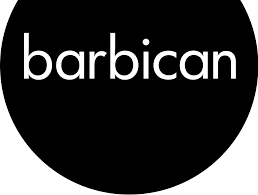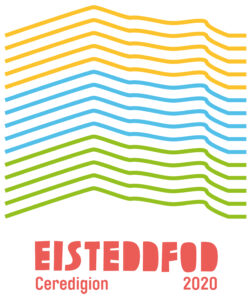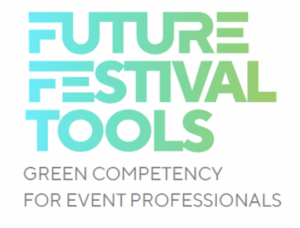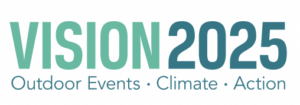It’s been another massive year when we’ve witnessed significant advances in and outdoor events sustainability, with a stack of inspirational achievements, initiatives, and campaigns across the summer. The adoption in principle of a new Green Events Code of Practice, and work to develop this across the industry, and the launch of an Environmental Sustainability chapter of the Purple Guide, a milestone for the industry as the first national source of best practice.
I’m feeling optimistic about the positive changes being made, although there is still a lot of work to do, with the More Than Music Report (March 2022), revealing that of the 975 festivals in the UK, less than half have a publicly available sustainability report, and only 45% have carbon offsetting measures in place.
There are many reasons to be optimistic that festivals will increasingly play their part in helping to avoid earth systems collapse (‘climate change’ is so yesterday). The industry is alive with activity and inspiration to support progress; there is a stack of new research, reports and guides to help understand what sustainability means in practice and chart our course as an industry. Behind the scenes, there is increasing levels of collaboration inspired and facilitated by forums and networks such as Vision:2025, Without Walls, LIVE Green and Earth Percent. With only a handful of years to take meaningful action, now is the time to ramp up action at festivals, and inspire action in society.
The Best of the Summer, 2023
The ‘Best of the Summer’ session at this year’s Sustainable Events Summit, hosted by Jon Rostrum (AIF), highlighted some of the great initiates at festivals this summer:
- Kendal Calling, following up on their ground-clearing ‘Take Nothing But Memories Home’ campaign success in 2022, launched the Flappy Tent app game, gamifying the environmental issue of left tents, and offering a £200 bar tab to spend at the festival for the first person to hit 50,000 points. It seems to have worked, almost eliminating left tents.
- Behind the scenes at festivals such as Kendal Calling, Bluedot and many others, bespoke Tony’s Chocolony bars could be found in artist areas, a brand partnership with Earth Percent to engage artists in their (equally brilliant) Earth as Co-Writer campaign; inspiring artists to assign a percentage of song royalties to the Earth.
- Shambala festival continues to trail-blaze, releasing a comprehensive Green Roadmap 2025, diving into the topic of climate justice, introducing rail + entry festival packages, and publishing full food impact data for the first time on an online reporting platform
- Glastonbury continues to push the boundaries and provide spaces for important voices: The entire festival was powered by renewable fossil-free energy (vegetable oil), a significant feat, and they teamed up with Octopus Energy to install a wind turbine onsite. Down at the Shrangri-La area – the home of activism – there was homage to jailed Just Stop Oil activist Marcus Dekker, and at the Silver Hayes area, a Mycelium Pavilion explored the potential of fungi to create building creative materials – check out the project report here.
- Boomtown drilled down on travel impacts this year, collecting data like it’s going out of fashion on supplier transport and scooping the new ecolibrium Travel Impact Innovator award at the UK Festivals Awards in the process.
- Festival Republic continued their focus on reducing waste, with great successes: banning disposable vapes at many of their events, launching a new partnership with Liquid Death selling water in cans collected for recycling, reducing plastic waste by 1.5m bottles across the summer. At Reading and Leeds, their Eco Campsites were expanded due to popular demand from 1,700 campers in 2022 to 14,200 campers this year! 99.3% of tents went home in the ecocamps, and overall tent waste reduced at Reading by 30%.
Also, check out StandOut Magazine’s end of season review: Organisers reveal this year’s sustainability developments, which covers We Out Here’s challenge organising an event in International Dark Sky Reserve, waste management innovations at Greenbelt and the London Marathon, and Shambala’s One Planet Plate initiative.
Green Winners and Leaders
Green Gathering won both the UK and International A Greener Festival Award this year – well-deserved recognition for this amazingly low impact event, and for being forebearers of sustainability.
Shambala was presented the international Clearwater Award at the International Folk Awards by musician Sam Lee, for “environmental stewardship and demonstrate public leadership in sustainable event production”.
Boomtown scooped the brand new ecolibrium Travel Impact Innovator Award at the UK Festival Awards, (alongside Best Production). Check out the full shortlist here.
This year’s Green Supplier and Innovation award, presented by the Showmans Show and hosted by the Sustainable Events Summit, was presented to Waste Bailing Machines for their mobile compactor unit tested at this year’s edition of Green Man, and resulting in a 70% lower carbon footprint for removing recyclable waste.
In our monthly Green Leaders Q&A, Vision:2025 we are lucky to have talked to leaders from Boomtown, Oya, Boom, Paradise City and more – see the website to catch up with insights from 36 green leaders!
Challenges and Regulatory Changes in 2023
A New Challenge – Electronic Vapes:
The recent rise in electronic vape use has left many events with thousands of disposable vapes in their waste streams. Vapes consist of lithium batteries, electronic components, and nicotine remnants (depending on the vape). DEFRA have not yet properly considered the impact of vape litter/disposal. They currently come under Waste Electrical and Electronic Equipment (WEEE) Regulations, but this is not widely enforced and Vape retailers mostly are not compliant. It is believed they will be classified under a separate category when WEEE regulations are updated. For now, the responsible way for events to manage waste vapes is to provide a dedicated bin or similar to collect them as a separate waste stream and put them in WEEE (electronic waste) recycling.
Waste Regulations are Changing
There are myriad changes to waste regulations, such as new rules for old furniture disposal (it now classes as toxic waste), single use plastic bans on specific items, and Extended Producer Responsibly in the legislative pipeline. For a full industry briefing, check out the Festival Industry and Waste Briefing.
New Rules about Sustainability Communications:
The new Green Claims Code came into effect in January 2022 to avoid organisations misinforming or misleading customers about false environmental credentials, known as ‘greenwashing’. For example, the code aims at tackling non-specific words or phrases like eco-friendly, sustainable, green, ethical, low-impact, compostable. Anyone can report an organisation for making a misleading green claim on their product or in advertising, which can lead to court proceedings. To date, Alpro has been pulled up on claiming their oat milk was ‘good for the planet’, and ads by Innocent, Oatly, Hyundai and Shell to name but a few, have been ruled as greenwashing. Find out more here.
New Research, resources and reports
There are plenty new resources to guides and support event organisers on their sustainability journey this year. Perhaps most significantly, a new Environmental Chapter of The Purple Guide has been launched, a milestone for the industry in terms of best practice, covering strategey, energy, materials, travel and food & drink. The new chapter comes as standard with Purple Guide subscriptions.
Better Not Stop, an impact agency that has become well-known for it’s transformative work with Kendal calling and Bluedot festivals, launched the More Than Music Report, which reviewed the online policies of 100 festivals.
ACT 1.5, an Arts Council England funded research project, has released a series of reports on car use at festivals, touring, and licensing. The Car Use, Carbon and Festivals report, co-authored with the Tyndall Centre for Climate Change Research (University of Manchester
recommended that reducing car parking by just 20% could lower festival travel emissions (excluding flights) by 10%. Festivals could set targets to incrementally reducing car parking use and facilitate alternatives to provide climate benefits in the next few years.
Julies Bicycle and Hope Solution published Raising the Bar, a cups guide for music venues which also provides useful information for events.
The Toward Zero Waste Festivals project, a collaborative endeavour to improve materials and waste management for the UK greenfield events sector published the Toward Zero Waste Festivals Report. It provides a detailed picture of waste challenges experienced by event organisers, insights into future trends and legislative change, and outlines recommendations for events and the industry to make progress on sustainable waste management. The report also identified a knowledge gap amongst event organisers about waste regulations and what to ask contractors.
The subsequent Festival Industry Materials and Waste briefing seeks to help to address this helping event organisers fully understand the current legislative landscape for waste, what to ask waste management contractors, and the key changes on the horizon. The briefing incudes new information about the UK plastics ban (2023), furniture classified as hazardous waste, and the new challenge of disposing of electronic vapes.”
Ecolibrium released their fourth edition Green Travel & Transport Guide for Festivals and Events (2023), providing updated context and new case studies, advice, tools, expert input on positively influencing audience behaviour, and insights on future trends in the UK.
A Greener Future (rebranded from A Greener Festival) held their 15th Green Events & Innovations conference, featuring conversations with Brian Eno, Jacob Collier and giving a sneak preview of the European Green Festival Roadmap. They also released a carbon report from participating AGF Assessed festivals, providing new insights into a festival’s typical footprint.
European Project and Resources
There has also been a proliferation of European projects coming to fruition this year (if only the UK had the same funding opportunities for strategic and sector work!)
In March Future Festival Tools launched, a significant free resource for event organisers including a Self Assessment Tool, 21 Inspirational stories (case studies) about sustainability at events, a 6 module e-Learner course on sustainability at events with certificate of completion and a trainers pack and resources for educators. All of these bitesize resources can be used by both individuals and teams, and for students, event production teams or senior leadership teams, in events or supply chain companies.
The Circular Festivals project, a collaboration of 43 festivals funded by the Dutch Government, launched the culmination of two year of work to define a ‘circular festival’. At ADE Green in October. It’s an impressively detailed model and well worth a look, providing a clear framework and targets for events.
Yourope, Europe’s festival association, released twp important pieces of work this year: The European Roadmap 2030, providing a overarching framework and helpful actions toward reducing impacts in line with 1.5 degrees; and Future Fit Festivals, a toolkit for social actions at events. Yourope also teamed up with IQ Magazine to public the first European Festival Report, featuring the results of the European Festival Survey, with input from 200+ festivals, a review of the 2022 festival year across the continent and in depth Q&As with festival professionals including Melvin Benn, Stephan Thanscheidt, Fruzsina Szép & Tamás Kádár.
Another new and significant resource for learning about festival sustainability comes in the form of a series of video masterclasses from Live Green (Sweden) called Master Class – it’s an impressive resource.
I’d hazard a guess that the festival sector is ahead of some other outdoor events groups, and we have a job to do in highlighting to everyone working on temporary event sites “what good looks like”. In the meantime, let’s applaud those who have worked hard, innovated, and supported festivals to become more sustainable in 2023. Well done everyone – we’re getting there.
What’s on the horizon for 2024? Standards, Toolkits and Conferences
The Green Events Code of Practice is being developed and tested (supported by Arts Council England and Earth Percent). Vision:2025 will work with 10 local authorities and a new assessment tool – the Donut Advisory Tool for Events (D.A.T.E), to explore how the code can support local authorities to implement policy and assessment criteria. The intention is to launch the code across the UK in early 2025.
Important conversations are taking place across the industry to establish a Green House Gas Protocol for live events, which promise to provide a transparent and common methodology for how the industry measures and reports carbon footprints. That could mean that whatever tools or services event organisers choose to use, the results would be comparable, and also that bodies such as Vsion:2025 and LIVE could gather figures about the industry as a whole as part of the journey to LIVE Green’s Beyond Net Zero ambition.
Attitude is Everything will be launching a toolkit containing practical solutions and case studies, examining how access to music and live events for disabled people can become environmentally sustainable.
Vision:2025 will launch a sustainable resources and waste toolkit at the AIF Congress in Bristol on February 1st, the next output of the Toward Zero Waste Festivals Project, and watch out for speaker releases for the next annual Green Events & Innovations Conference, 27th February 2024.
And finally, look out for the new edition of Meegan Jone’s Practical Guide to Sustainability book in 2024 – the original full text book!
























